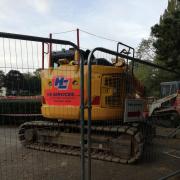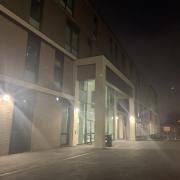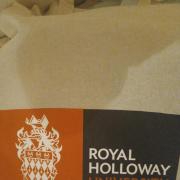
It can be argued that the peace corps was the only major achievement of Kennedy's frontier program through its humanitarian focus on developing less economically developed countries. The peace corps were born out of the Cold War conflict with the Soviet Union; it can be suggested that years of conflict resulted in Kennedy's new focus on peace. 1961 saw a clarion call where Kennedy reached out to the nation with the quote “ask not what your country can do for you, but what you can do for your country”. It can be argued that Kennedy's more serviceable attitude and perspective was established as a result of the violence in the recent Korean War and the recent development of the vietnam war. Kennedy's intentions were to influence Americans to help developing countries by reinforcing American economic and technical values through volunteers. Through executive orders Kennedy was able to pass the development of the peace corps without the disruption and objection from the divisive southern Democrats in Congress. In the first two years the Peace Corps saw 5000 volunteers help carry American economic and technical aid to 48 countries. It is clear that the peace corps was a social success with places like Benin and the Dominican Republic socially indebted to America’s generosity. However neutralists such as historian Derrick Murphy, co-author of “Democracy in change: Britain and the USA in the 20th century” failed to mention the more militaristic intention of Kennedy’s Peace Corps to gain more allies and protect America from the threat of the Soviet Union. Although it is understood that the Peace Corps resulted in social and partially militaristic success making it a major achievement.
I will now argue the significance of space race that suggests that the Peace Corps wasn’t the only major achievement of Kennedy’s new frontier programme. Kennedys participation in the space race and the development of NASA proved to be a very successful factor born from the frontier programme. Kennedy’s investment and focus in the possibilities of space stemmed from the Soviet union’s attempts and final success of getting a satellite, known as Sputnik, into space in 1957. Whether it be curiosity or jealousy, Kennedy found a mighty desire to explore space. Kennedy quickly responded to the Soviet successful launch of a satellite into space with the creation of the national Aeronautics and Space Administration (NASA), in 1958. Kennedy created NASA to coordinate American efforts in space, it can be understood that the creation of NASA kickstarted the space race between the USA and the USSR. The space race's success really came in June 1969 where America was the first nation to land a man on the moon. 1961 saw the Soviets in the lead with Yuri Gangarin being the first man in space when America only reached that target two years later. Kennedy also requested further economic aid of 7 to $9 billion to help fulfill Kennedy’s desire of exploring space. It can be argued that the humanitarianism shown within the Peace Corps was monumental but the exploration of an untouched existence that is space proved to be even more monumental. The idea that Kennedy’s fixation and dedication on exploring the unknown within the space race proves to be that the space race was a major achievement of Kennedy's frontier programme. It is evident that both the peace corps and the space race were successful factors of Kennedy’s new frontier programme suggesting that there was no major achievement but several individual achievements



























